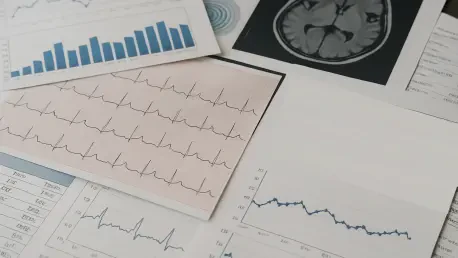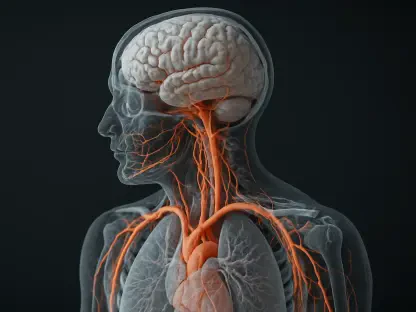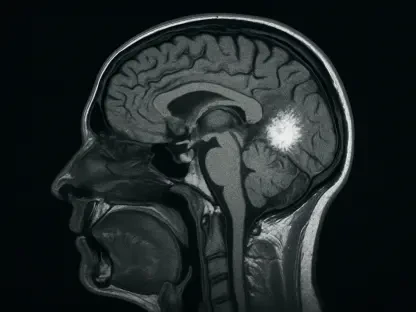In an era where healthcare increasingly relies on the power of data to transform patient outcomes and operational efficiency, Hallym University Medical Center has emerged as a beacon of innovation by hosting a groundbreaking competition focused on medical data analysis. Held at the Ilsong Culture Hall on the 5th floor of Hallym University Sacred Heart Hospital in South Korea, this event brought together brilliant minds to tackle real-world clinical challenges using anonymized data from the hospital’s cutting-edge Next Generation Data Lake Cloud Platform, known as HERO. Under the leadership of Director Kim Yong-sun, the competition aimed to sharpen creative problem-solving skills and elevate the clinical relevance of data-driven insights. It showcased how big data can bridge the gap between theoretical research and practical healthcare solutions, setting a precedent for how technology can redefine medical practice. Participants from diverse backgrounds engaged in rigorous analysis, proving that data is not just numbers but a vital tool for saving lives and optimizing hospital workflows.
Pioneering Data-Driven Healthcare Solutions
The competition at Hallym University Medical Center highlighted the transformative potential of medical big data in addressing pressing healthcare challenges. Participants leveraged the HERO platform’s anonymized clinical data to develop innovative solutions, with projects ranging from predicting patient risks to streamlining hospital operations. Judged by a panel of experts, including professors from the School of Information Science and clinical professionals, the event emphasized both technical expertise and practical applicability. The evaluation process meticulously assessed how well submissions could translate into real-world impact, resulting in awards for one grand prize team, two best prize teams, and four teams receiving notable recognition. This rigorous selection underscored the high standards set for harnessing data to improve patient care, demonstrating that analytical precision can directly influence clinical decision-making and enhance health outcomes in tangible ways.
A standout achievement was the grand prize awarded to the Hanlim Big Data 2 Team, composed of nurses Hwang Hye-jin, Kim Yoo-jin, and Kim Ji-sun. Their project, focused on developing an AI-based prediction model for neutropenia risk in chemotherapy patients, showcased the power of multimodal data analysis. By examining blood test results and drug administration histories from around 4,000 patients at the medical center, the team crafted a model using Python that achieved an impressive ROC-AUC score of 0.93. This high accuracy in identifying at-risk patients points to a future where personalized treatment plans could become standard, minimizing dangerous side effects. Head nurse Hwang Hye-jin noted the model’s potential as a foundation for decision-making support systems, illustrating how data-driven tools can empower healthcare providers to anticipate and mitigate risks before they escalate, ultimately fostering a more proactive approach to patient safety.
Diverse Innovations in Medical Data Applications
Beyond the grand prize, the competition revealed a wide array of projects aimed at enhancing both clinical care and operational efficiency within healthcare settings. Notable submissions included a data-driven model to predict bottlenecks in emergency rooms and a time series prediction model for pre-nursing workload allocation. These initiatives tackled critical issues such as reducing patient wait times and optimizing staff resources, proving that medical data analysis extends far beyond patient diagnosis to encompass the broader ecosystem of hospital management. The diversity of topics presented during the event reflected a shared vision of using technology to solve multifaceted challenges, from immediate patient needs to long-term administrative improvements. Such efforts highlight the versatility of data as a resource that can simultaneously elevate the quality of care and streamline the often complex logistics of running a medical institution.
Seo Young-kyun, director of the Big Data Center and a Professor of Family Medicine at Hallym University Sacred Heart Hospital, commended the exceptional quality of the submissions, many of which were deemed suitable for publication or direct clinical application. His remarks emphasized a commitment to sustaining and expanding these competitions, with plans to diversify data sources and participant backgrounds in future iterations. The Big Data Center envisions building a robust innovation ecosystem around the HERO platform, supporting research publication and practical implementation of findings. This forward-looking approach suggests that events like this are just the beginning of a larger movement to integrate data analysis into everyday medical practice, potentially reshaping how healthcare providers address both individual patient needs and systemic inefficiencies over the coming years.
Building a Legacy of Medical Data Excellence
Hallym University Medical Center has solidified its position as a leader in medical data utilization through sustained efforts since establishing its Big Data Center under the Doheon Digital Medical Innovation Research Institute (DIDIM). The HERO data lake cloud platform stands as a cornerstone of this progress, enabling sophisticated data storage and analysis capabilities that fuel groundbreaking research. The center’s involvement in national initiatives, such as the medical data-oriented hospital support project and the K-CURE clinical data network construction, further cements its role as a pioneer in this field. Achieving dual certifications in Medical Data Content and Management Systems—a first for any medical institution—demonstrates an unwavering dedication to maintaining the highest standards in data handling and application, ensuring that innovations are both credible and impactful for the healthcare community at large.
Reflecting on the broader implications, the competition underscored the growing significance of big data in shaping the future of healthcare. It illustrated how AI and predictive modeling can address critical risks while offering solutions to operational hurdles. By fostering a collaborative environment where data scientists and clinicians converge, Hallym University Medical Center is paving the way for a data-driven healthcare paradigm. Looking ahead, the focus remains on scaling such initiatives, encouraging wider participation, and integrating these analytical advancements into routine medical practice. This commitment ensures that the insights gained from competitions like this will continue to inform strategies that enhance patient outcomes and hospital efficiency, marking a significant step toward a future where technology and medicine are seamlessly intertwined for the betterment of society.









